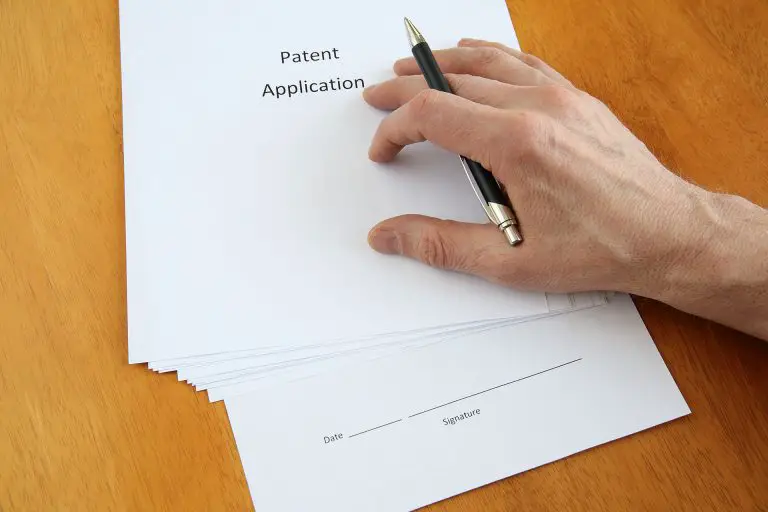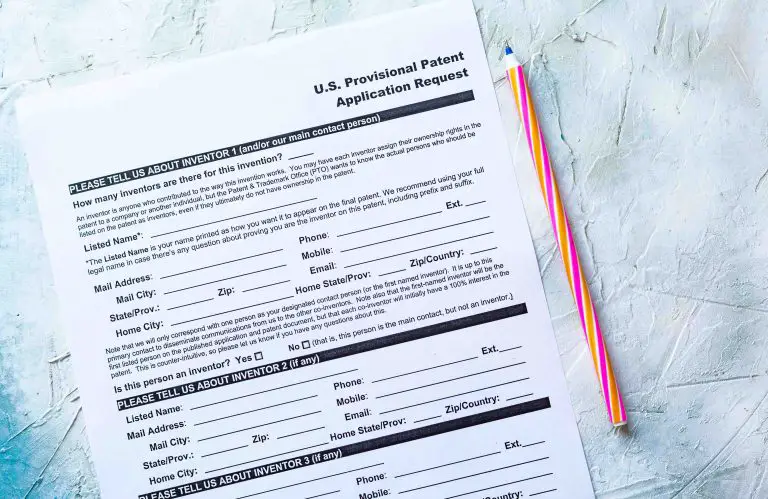What is a Patent Agent?
If you’re an inventor who has just finished working on his invention, you might be wondering whether to choose a patent attorney or a patent agent to assist you with patenting your invention or process. So, what is a a patent agent? This article will explain what a patent agent is, as well as how patent agents are different from patent attorneys.
Many wonder whether there is a difference between a patent agent and a patent attorney? Knowing the difference between the two will help you choose the kind of professional that you need to protect your intellectual property (IP). Choosing the wrong professional can end up costing you time and money.
What is a Patent Agent?
A patent agent, often referred to as a patent practitioner is licensed to provide applicants assistance with the patent application process to get a patent for their invention. Patent agents are approved by the USPTO (United States Patent and Trademark Office), to act as an intermediary between the applicant/inventor and the patent office.
Patent agents can assist individual inventors, businesses, the federal government, private citizens, corporations, and pharmaceutical companies. To become a patent agent, an individual must have a degree in engineering or physical science and he must pass the same Patent Bar Exam that lawyers must pass to practice patent law and be registered with the USPTO. Source
Patent agents help inventors and applicants determine the type of appropriate intellectual property protection. They are able to perform patent searches for similar inventions that can prevent inventors from successfully pursuing utility, design, or plant patents.
Patent agents also act as an intermediary between the applicant and the USPTO, assisting in the completion of the patent application and resolving any issues that arise between the patent office and the applicant.
Here are some of the things that patent agents typically help inventors and applicants with:
- Learning about the invention
- Conducting patent searches for similar inventions
- Discussing any similar inventions with the patent applicant
- Completing patent applications
- Communicating with the USPTO on behalf of the applicant
- Answering questions from the patent office
- Responding to rejected applications
What Does a Patent Agent Do?
Patent agents assist inventors and applicants in patenting their inventions, processes, and designs. Typically, inventors want to protect their intellectual property rights by obtaining a patent from the USPTO. If an inventors is successful in obtaining a patent, the inventor will be able to make and sell his invention while restricting others from using, making, selling, or importing his invention to the United States.
Once an inventors has patented his invention with the help of a patent agent, he will be able to grants others permission to use his invention. Inventors typically allows the use of their patented invention or process in exchange for a fee.
Although inventors and applicants may choose to complete and file their patent application without the help of a patent agent or patent attorney, many find the application process to be complex and will therefore hire an experienced patent agent to help them and represent them throughout the process.
Patent Agent vs Patent Attorney
By now you might be wondering what is the difference between a patent attorney and a patent agent? The difference between a patent attorney and a patent agent is that patent attorneys are licensed lawyers who can practice general law and give their clients advice relating to any legal matter, while patent agents have only passed the Patent Bar Exam and are only allowed to handle patent matters with the USPTO. Some attorneys are both lawyers and patent agents because they have also passed the Patent Bar Exam.
Both patent agents and patent attorney are authorized and competent to draft, fill out, and file patent applications with the USPTO. However, when it comes to drafting contracts and non-disclosure agreements (NDAs), only attorneys can perform these functions. Also, patent agents are not permitted to advise inventors and applicants when it comes to proceedings that take place in a courtroom.
Key Differences Between Patent Agents and Patent Attorneys
This table will illustrate and summarize the key differences between patent agents and patent attorneys. This is not an exhaustive list, but it does list some differences that might be of interest to you.
Patent Attorney vs. Patent Agent
| Inquiry | Patent Agent | Patent Attorney |
|---|---|---|
| Who can file a patent with the USPTO? | Yes, any patent agent who has passed the Patent Bar Exam is authorized to complete and file your patent application with the USPTO | Yes, any attorney who has passed the Patent Bar Exam can complete and file your patent application with the USPTO |
| Give Advise on Patentability and Prior Art? | Patent agents have not attended law school, but they are licensed by the patent office and are therefore able to advise you on the patentability of your invention. Also, they are allowed to assist you with the preparation and filing of your patent, as well as communicating on your behalf with the patent office. | Patent Attorney, unlike patent agents have attended law school and have passed the bar exam of their state. A patent attorney can give you advise as it pertain to the patentability of your invention, as well as, the legal ramifications of patenting it. Also, they can advise you on legal matters that are not related to patenting your invention. |
| Does attorney /client privilege exist? | Patent agents are required to keep information related to their client’s patent confidential. However, this does not apply to any other legal matters their client is involved in | Patent attorneys are legally obligated to keep all communications between them and their client private, to the extent required by the law. |
| Do they have legal training? | Patent agents only have a degree in science or engineering, some of them have not completed law school. So, while they are permitted to assist you in patent related matters, they are not able to provide general legal advice. | All patent attorneys have attended law school and have been granted their JD degree. Also, after completing law school, they have passed the bar exam of their state |
| Can they provide legal advice? | Patent agents are not lawyers and therefore they are not permitted to offer any legal advice. They cannot give you advise you to sue anyone for patent infringement. | Patent attorneys have a legal education, usually from an ABA accredited law school. As such, they can advise you on patenting your invention, as well as other legal matters regardless of whether they’re related to your invention. |
| Cost? | If you’re looking for a patent attorney you will notice that the cost varies from one attorney to another, however patent attorneys typically charge more than patent agents because they have more legal training than them. $$$$ | Patent Agents are typically cheaper to hire than patent attorneys, but remember that they do not have the legal training that attorneys have, so the scope of the service they render is less. For the average person, a decent patent agent should offer plenty of help. |
Now you might be wondering whether the differences between the two justify paying more money to a patent attorney. Now that you know how the two are different, you can make an educated choice as to whether you want the assistance of a patent attorney or a patent agent. Choosing the correct professional will save you time and money in both the short and long term.
When looking for a patent agent or patent attorney, look for someone who has sufficient experience in the field of your invention, his education, and post-graduate work. Often time applicants look for patent agents who offer lower rates and if they end up choosing an agent with little experience, this may end up costing them time and money in both the short and long term. Finding an experienced patent agent is the key to success.
Where Do Patent Agents Work?
Patent agents are registered with the USPTO and therefore, patent agents are able to work with inventors, businesses, governmental agencies to represent them before the United States Patent Office. Many patent agents choose to work with the USPTO as patent examiners. So, when it comes to the technical and legal aspects of patents, patent agents are more than qualified to handle such matters.
Only patent attorneys and patent agents are able to directly work with and represent clients before the patent office. The biggest barrier to working with the patent office is passing the Patent Bar Exam, once an individual passes the bar exam and registers with the Patent Office, they have overcome the significant barriers to entry.
According to data from the USPTO, there were more than 44,295 registered patent practitioners as of April, 2016. From the 44,295 registered practitioners, approximately 30,000 of them are patent attorneys, the remaining 14,000+ are patent agents.
How Much Do Patent Agents Make?
According to statistics from Glassdoor, the average patent agent makes between $95,059 and $121,663 per year. On the low-end, patent agents make $89,000 and on the high-end, patent agents make $156,000. A patent agents salary depends on the agent’s experience and the geographical location in which he works.
Is it Hard to Become a Patent Agent?
The difficulty of becoming a patent agent depends on the person applying to become an agent. Patent agents are required to have a degree in either engineering or science. Patent agents must then study patent law, rules, and understand the working of the patent office. To become a patent agent, an individual must also pass the Patent Bar Exam, making becoming a patent agent a somewhat difficult yet achievable task.
How Long Does it Take to Become a Patent Agent?
How long it takes to become a patent agent depends on whether you already have a degree in science or engineering. If you already have a science or engineering degree, you can become a patent agent in as little as 6 months, depending on how long it takes you to prepare and pass the Patent Bar Exam.
If you do not have a science or engineering background, you will have to factor in the time it takes you to obtain such a degree.
Patent Agent Job Description
Patent agents are as the name implies agents for inventors, representing them in matters related to the USPTO. Patent agents use their science or engineering backgrounds to help individuals and companies protect their intellectual property (IP). They help inventors navigate the ever-changing terrain of patent law.
Patent agents typically collaborate with attorneys, experts, and other professionals to complete and prosecute patent applications based on their skill set and the needs of their clients.
Patent agents act as intermediaries between their clients and the patent office. Clients often hire patent agents to complete and file their patent applications. They also handle any communications or questions that applicants receive from the patent office.
That said, before a patent agent can offer his services to applicants and clients, he must either hold a degree in engineering or science. After obtaining his degree, a potential agent must submit an application to the USPTO, he must take and pass the Patent Bar Exam, and then he must complete the registration process with the USPTO. Source
Once a patent agents begins to represent a client who has an invention that he wants to patent, the agent will begin performing research to determine whether his client’s invention is patentable. As part of the patentability determine, the agent will look for similar inventions and if any appear, the agent typically discusses it with the client to see if the inventions are different.
Once the patent agent completes the search, he will prepare the patent application and file it with the USPTO. If the patent examiner has any questions or issues with the application, he can communicate with the patent agent to resolve the issue.
Patent Agent
We hope that this article helped you understand what a patent agent is and the type of work that they do. We also covered the average salary for a patent agents, as well as the qualifications that an individual must have to become a patent agent. If you have any general questions or comments, please feel free to leave them in the comments section below.







